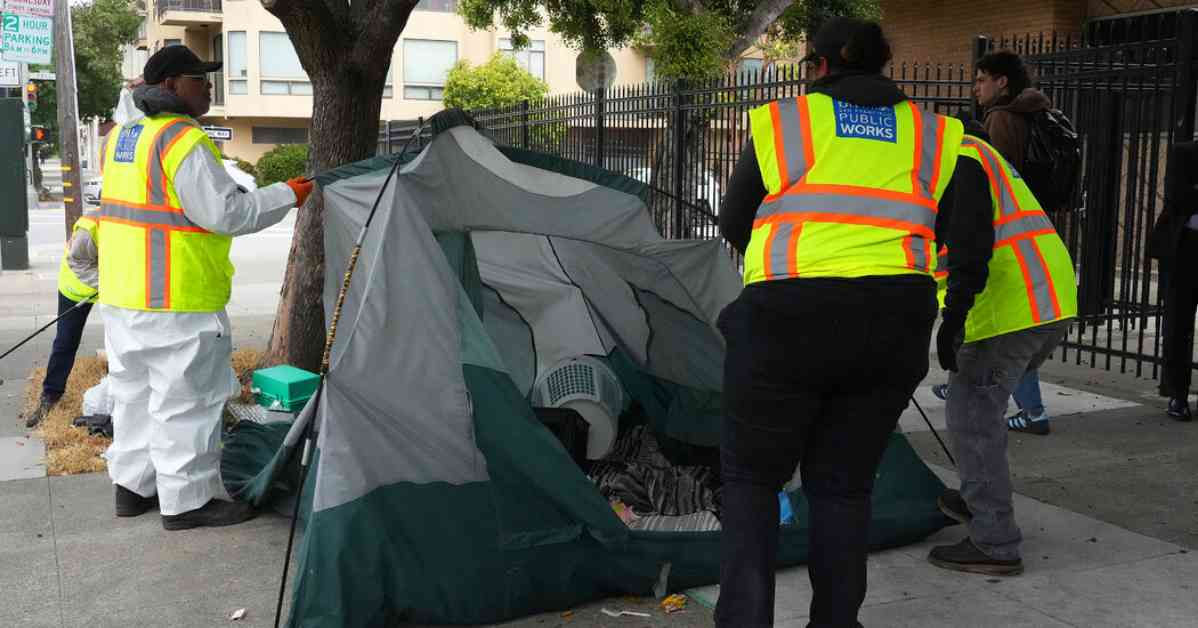San Francisco is taking a tougher stance on homeless camps, challenging the city’s reputation for compassion towards the homeless population. Mayor London Breed has directed city officials to issue citations and even offer free bus tickets to encourage homeless individuals to leave town.
Despite multiple attempts by city crews to clear out homeless encampments near Golden Gate Park, the homeless individuals have consistently returned. However, Mayor Breed has made it clear that this time will be different. The city will no longer tolerate homeless people sleeping on the sidewalks if alternative shelter is available. According to the mayor’s office, the individuals near the Department of Motor Vehicles office had rejected 89 offers of shelter this year, prompting the crackdown.
In a departure from the city’s traditional approach of compassion over enforcement, Mayor Breed emphasized the need for “tough love” on the streets of San Francisco. Faced with growing frustration from voters over issues like homeless encampments and drug use, the mayor has decided to take a more aggressive stance as she seeks re-election.
Empowered by a recent Supreme Court decision and supported by Governor Gavin Newsom, Mayor Breed has pledged to clear out encampments and authorize police officers to cite homeless individuals for illegal lodging if they refuse shelter. Jail time is also on the table as a consequence for non-compliance.
This shift towards a stricter approach reflects the changing attitudes towards homeless encampments in San Francisco. While the city has long been known for its liberal values and compassionate policies, the current situation demands a different response. As Mayor Breed faces a tough re-election campaign, she is prioritizing the need to address the visible homelessness crisis in the city.
The crackdown on homeless camps in San Francisco is a complex issue that raises questions about the balance between compassion and enforcement. While the city grapples with the challenges of homelessness, it is crucial to consider the underlying causes and systemic issues that contribute to the problem. Efforts to provide adequate shelter and support for homeless individuals must go hand in hand with enforcement measures to ensure public safety and address the concerns of residents.
As the city continues to navigate these difficult issues, finding sustainable solutions to homelessness will require a comprehensive approach that addresses the root causes of the problem. By striking a balance between compassion and enforcement, San Francisco can work towards creating a more inclusive and equitable city for all its residents.


















